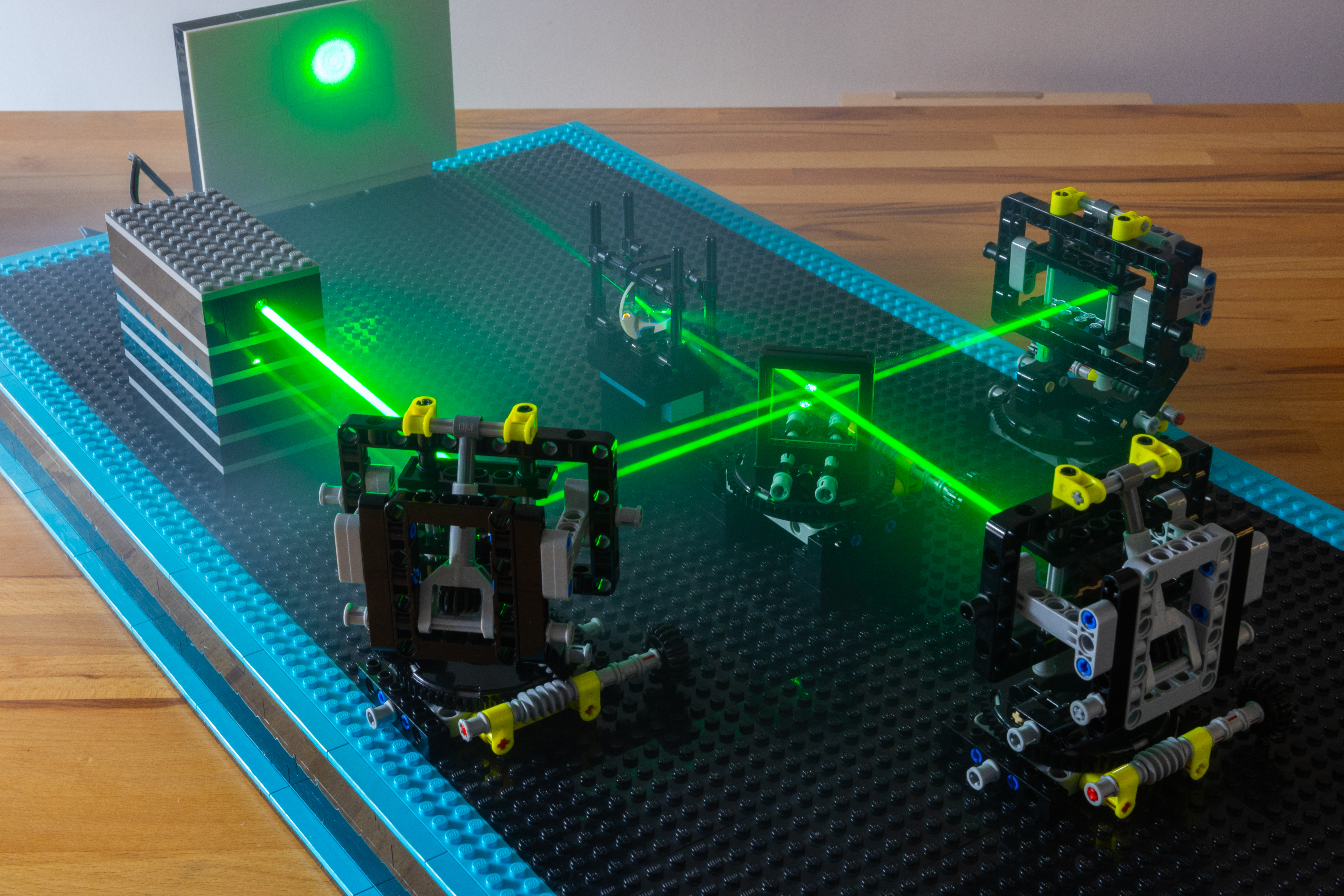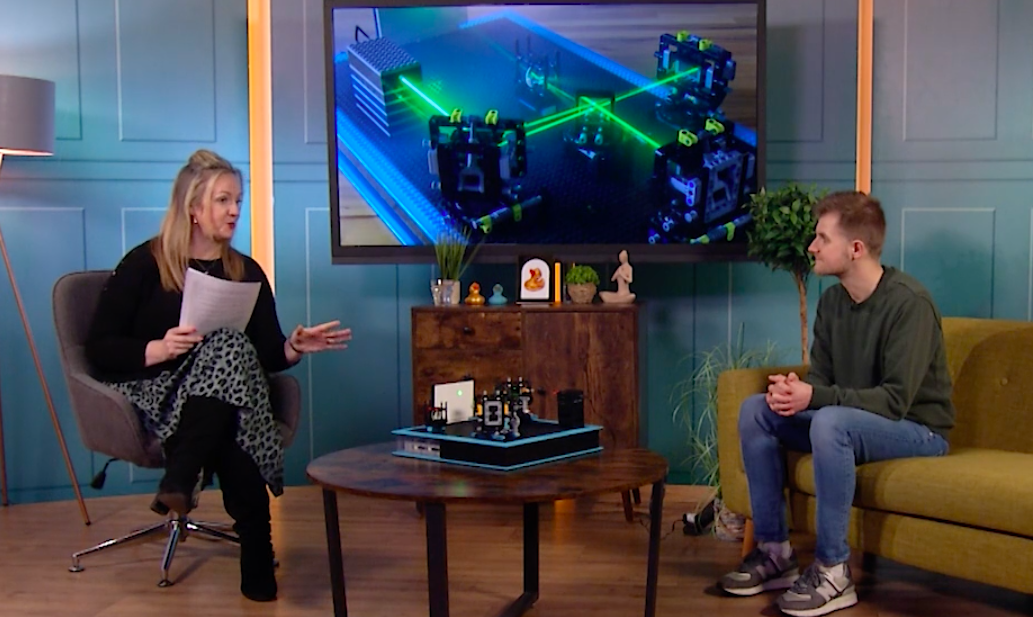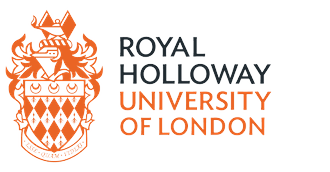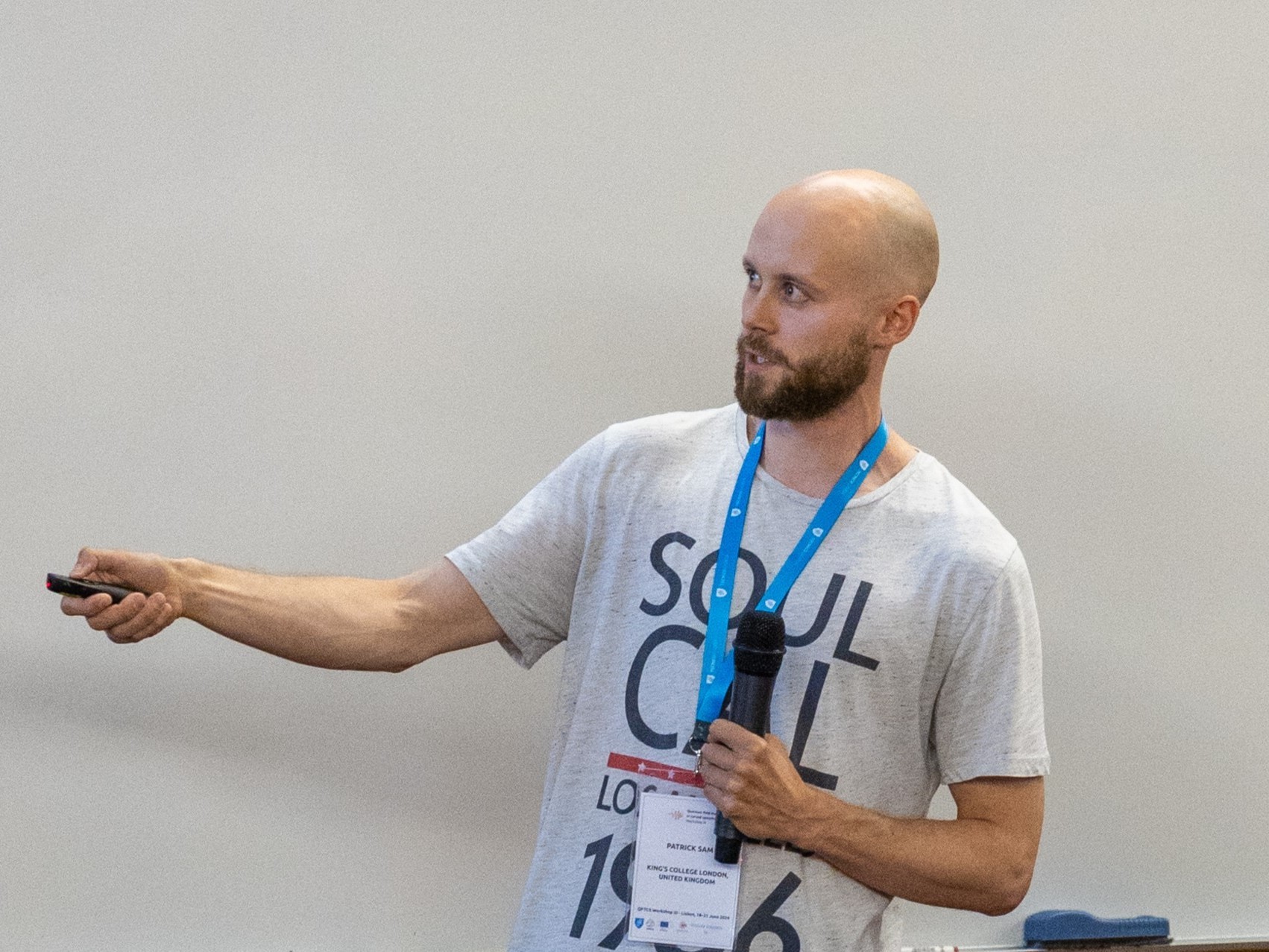NEWS

February 27, 2025
Nature selected a picture from our "LEGO with lasers setup"
Our PhD student Leonardo Solidoro took a wonderful picture of our "LEGO with lasers", selected by Nature to be part of this article. Complete with fully functioning lasers, mirrors, and beam splitters, this ‘LEGO interferometer’ was designed by researchers at the University of Nottingham, UK, and can be seen in action at a public exhibition at the university’s Djanogly Art Gallery. The model replicates more-high-tech instruments that physicists use to probe materials, or even to measure the nearly imperceptible motions caused by gravitational waves. When two laser beams are combined, they create an interference pattern of alternating dark and bright stripes, which is highly sensitive to even the tiniest changes in the lengths of the beams.

February 27, 2025
Patrik Svancara at Notts Today!
Dr. Patrik Svancara, postdoc part of our consortium, has been invited for an interview on Notts Today, a TV show dedicated to news and views for all things in Nottingham. He discussed his unique interferometer, built entirely with LEGO, which is currently featured in an art exhibition at the Lakeside Arts gallery. His work beautifully blends science and creativity, offering visitors a fresh perspective on experimental physics through an artistic lens.
Watch the full interview here, starting from min. 15.57!
SEMINARS

November 26, 2024
2:00 p.m.
Mireia Tolosa-Simeón
“Analogue gravity in Dirac materials”

November 11, 2024
3:00 p.m.
Tobi Haas
“Quantum features from classical entropies”

October 15, 2024
2:00 p.m.
Josu Aurrekoetxea
“Fundamental fields around black holes”
PUBLICATIONS
-
Generalized cold-atom simulators for vacuum decay (September 24, 2024)
Alexander C. Jenkins, Ian G. Moss, Thomas P. Billam, Zoran Hadzibabic, Hiranya V. Peiris, and Andrew Pontzen
Link: here
-
Hyperboloidal method for quasinormal modes of non-relativistic operators (September 4, 2024)
Christopher Burgess and Friedrich Koenig
Link: here
-
Making two particle detectors in flat spacetime communicate quantumly (July 22, 2024)
Alessio Lapponi, Jorma Louko, and Stefano Mancini
Link: here
-
More excitement across the horizon (July 9, 2024)
María R. Preciado-Rivas, Manar Naeem, Robert B. Mann, and Jorma Louko
Link: here
-
Third sound detectors in accelerated motion (June 20, 2024)
Cameron Bunney, Vitor S Barroso, Steffen Biermann, August Geelmuyden, Cisco Gooding, Grégoire Ithier, Xavier Rojas, Jorma Louko and Silke Weinfurtner
Link: here
TEAM
Meet our team, with professionals from every part of the world!

MEDIA
Quantum-to-Classical Vortex Flow: Quantum Field Theory Dynamics in Rotating Curved Spacetimes
Gravity simulators are laboratory systems where small excitations like sound or surface waves behave as fields propagating on a curved spacetime geometry. The analogy between gravity and fluids requires vanishing viscosity, a feature naturally realised in superfluids like liquid helium or cold atomic clouds. In particular, quantum simulations of rotating curved spacetimes indicative of astrophysical black holes require the realisation of an extensive vortex flow in superfluid systems. Despite the inherent instability of multiply quantised vortices, we demonstrate that a stationary giant quantum vortex can be stabilised in superfluid 4He. Its compact core carries thousands of circulation quanta, prevailing over current limitations in other physical systems. We introduce a minimally invasive way to characterise the vortex flow by exploiting the interaction of micrometre-scale waves on the superfluid interface with the background velocity field. Intricate wave-vortex interactions, including the detection of bound states and distinctive analogue black hole ringdown signatures, have been observed. These results open new avenues to explore quantum-to-classical vortex transitions and utilise superfluid helium as a finite temperature quantum field theory simulator for rotating curved spacetimes.
EXPERIMENTAL FACILITIES






